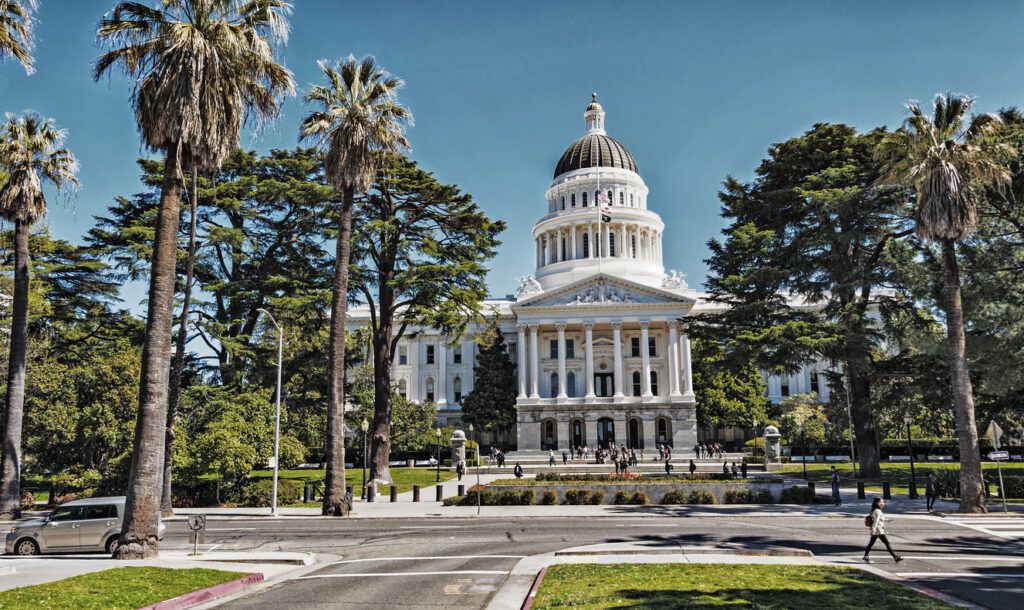Think Your Race Is Going Sideways? Consider the California Reality

Image Credit: jmoor17
You’d be foolish to bet against the Harlem Globetrotters. With more than 27,000 wins in franchise history, the Globetrotters’ last loss came in 2006. Coincidentally, that’s the last time Democrats lost a statewide race in California.
California Democrats head into the November general election as strong as ever. With a nearly 2-to-1 voter registration advantage, this won’t be the year Democrats lose statewide.
In the last 20 years, as California’s population has increased, Democrats have gained more than 3.5 million new voters – while Republican voter registration has decreased by 100,000 voters. Meanwhile, voter registration for “No Party Preference” has surged, more than doubling over the last two decades.
In addition to its one-party dominance, campaigning in California is unlike anywhere else in the country. Its massive population sprawled across a vast geographic landscape makes it challenging to engage in traditional retail politics. Consider this reality: more registered voters will pick the next mayor of Los Angeles than will choose the governor in 20 states.
With California’ unique political conditions, here’s what to expect on Election Night.
1. Newsom prepares for a Potential White House Bid
In the June primary, Gov. Gavin Newsom won an outright majority – 56 percent of the vote. He bested his nearest Republican opponent by a 3-to-1 margin. California Republicans’ desperation is evident in the campaign message of its standard bearer. “I’m not a crazy Republican,” state Sen. Brian Dahle, the GOP gubernatorial nominee, told the Associated Press in his first major interview following the June Primary. “I’m a reasonable person.”
Newsom is so confident in his reelection that he’s started running campaign ads – in Florida. According to the Los Angeles Times, Newsom’s gubernatorial campaign has spent approximately $105,000 to air ads on Fox News stations in Florida.
2. Despite Media Hype, Democrats Cruise to Victory in Every Statewide Race
Democrats seem invincible in California. One of the few vulnerable statewide officeholders is Democrat State Treasurer Fiona Ma. She has faced numerous embarrassing scandals, including allegations that she sexually harassed an employee. I In June, Ma outperformed Newsom – earning 57.4 percent of the vote.
In a bid to generate interest in statewide races, California’s political reporters have hyped Lanhee Chen as a Republican with “a shot at becoming California state controller.” Although Chen has earned positive press coverage and a few editorial endorsements, as a down-ticket candidate, he doesn’t stand much of a chance to defeat Democrat Board of Equalization member Malia Cohen.
3. Gaming Interests Set New Campaign Spending Records
There might not be a competitive statewide candidate race, but Californians can still expect a barrage of political advertisements. Gaming interests are expected to set new campaign spending records with two competitive sports betting measures. Proposition 26, which is supported by Native American tribes, would let people bet on sports at tribal casinos. Proposition 27, which is backed by sports betting companies, would let people bet by phone with revenue going to support homeless programs.
The dueling sides have already raised more than $350 million, an amount that would break all previous campaign spending records. In 2020, campaigns spent $224 million on a statewide ballot measure to exempt ride-sharing drivers from being classified as employees.
4. Congressional Republicans Brace for More Redistricting-Induced Losses
Ten years ago, California Republicans lost four congressional seats in the first election under new maps drawn by the state’s independent redistricting commission. The commission, which was supposed to remove partisan political influence from the redistricting process, was easily fooled by a well-organized campaign by Democrat operatives and front groups. An analysis by the Brennan Center credits at least three of those defeats directly to the 2012 redistricting.
This time around, the state’s redistricting commission once again approved maps that heavily favor Democrats. Republicans could again lose as many as four seats and would need to run the tables in all toss-up and lean-GOP seats just to maintain the status quo.
5. Three Strikes and You’re Out for Union Dialysis Measure
For the third consecutive election, voters will decide whether to require a doctor, nurse practitioner or physicians’ assistant to be present during treatment at an outpatient kidney dialysis clinic. Proposition 29 was placed on the ballot by the Service Employees International Union-United Healthcare Workers West.
Labor unions have used this ballot measure as a proxy fight with the state’s more than 600 kidney dialysis clinics, who have resisted efforts to unionize workers.
Justin Wallin is CEO of J. Wallin Opinion Research, a national opinion research firm with business, political and government clients.
Arianna Barrios is the owner and CEO of Communications LAB.
